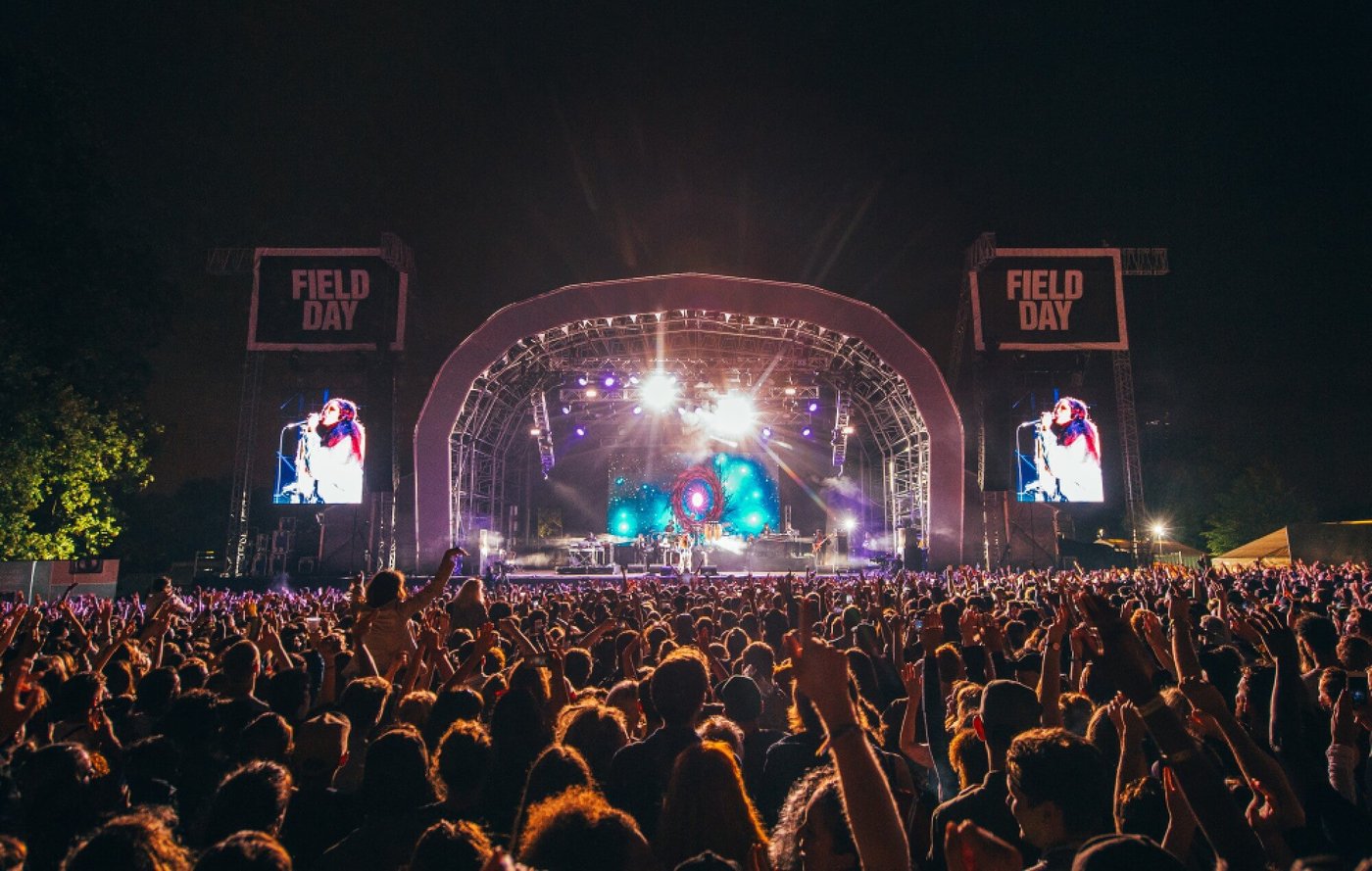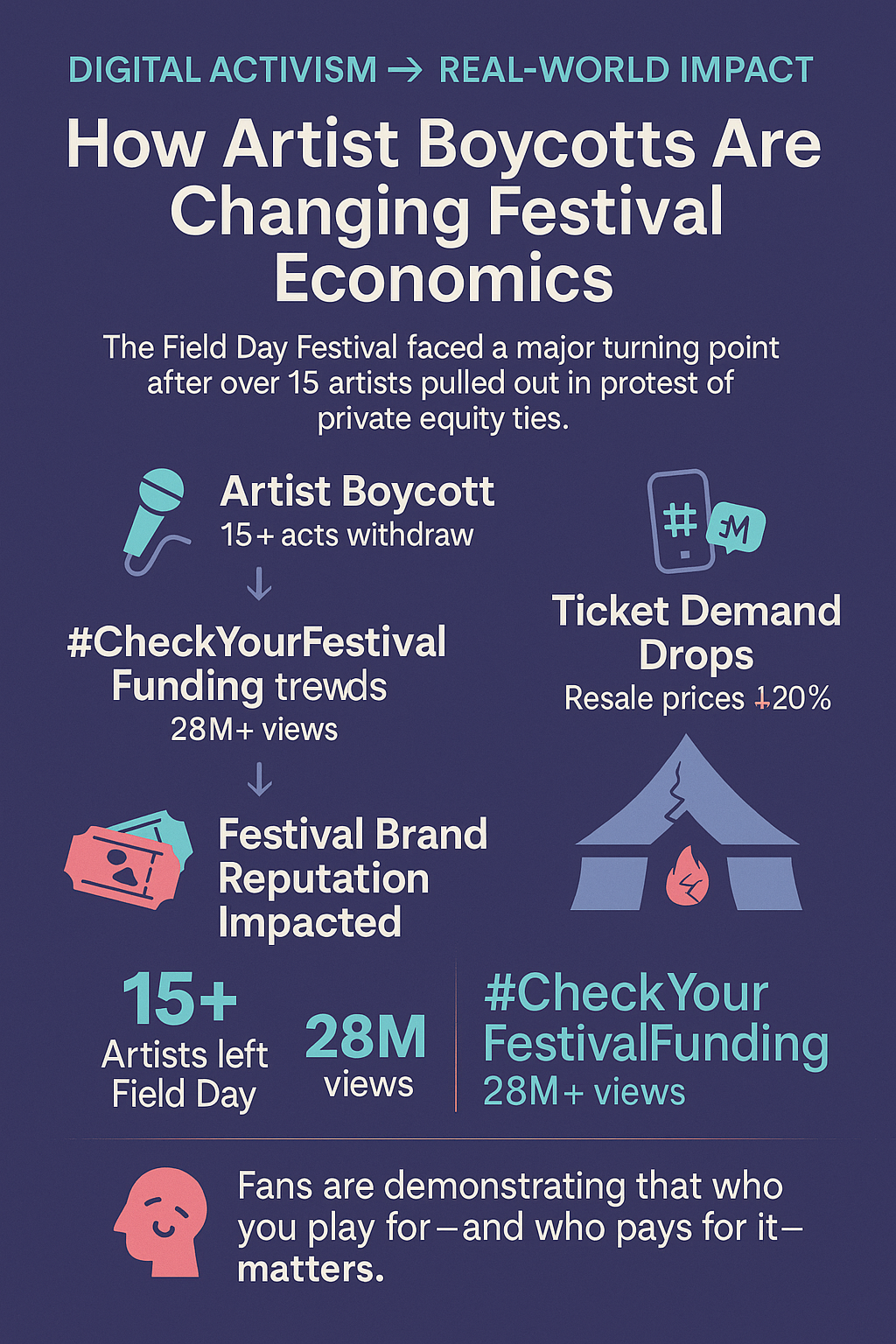Musicians Boycott Major Festivals Over KKR Funding Gaza Connections


In an unprecedented wave of artistic activism, musicians across genres are taking a stand against performing at festivals financially connected to KKR (Kohlberg Kravis Roberts), citing the investment firm's alleged ties to companies providing weapons used in Gaza. This growing movement raises profound questions about where artists draw ethical lines and how financial entanglements in the music industry increasingly face public scrutiny.
Which major artists are boycotting KKR-funded festivals
The boycott gained significant momentum when British indie rock band Yard Act withdrew from the Connect Festival in Edinburgh, explicitly citing KKR's investments in the defence industry. In their Instagram statement, the band wrote: "We've taken the decision to pull out of Connect Festival due to its ties with AEG, who are owned by the Anschutz Corporation, who have investments with KKR, who in turn have investments in Elbit Systems who manufacture weapons that are being used in Gaza."
Following the Yard Act's decision, the ripple effect has been swift. Scottish post-rock legends Mogwai announced their withdrawal from the same festival. At the same time, prominent electronic artists including Four Tet and Caribou have publicly questioned their participation in events with similar financial connections.
In early May, the London-based collective SISU publicly announced its withdrawal from the Field Day Festival, citing the festival's inaction regarding its financial ties. “SISU withdraws our stage, our lineup, and our labour from Field Day,” read their Instagram post, calling it a unanimous decision made in solidarity with their booked artists who refused to “be complicit in the co-option of our music and dance scene.” The post further criticized the festival’s failure to take meaningful action against what SISU called its “complicity.” It urged others in the community to reconsider the ethics of where they perform. The move added fuel to a growing cultural reckoning around private equity’s role in live music, amplifying pressure on both artists and festivals to respond.
The movement extends beyond the UK scene. Sources close to several major American artists report ongoing internal discussions about cancelling summer festival appearances. However, many remain contractually constrained or hesitant to make public statements while gathering information about complicated ownership structures.
Why artists are taking stands against festival sponsors like KKR
This wave of boycotts represents a significant evolution in how musicians view their responsibilities. While artists have historically used their platforms for political expression through lyrics and benefit concerts, targeting the financial infrastructure of the industry itself marks a new frontier in musical activism.
"Artists are increasingly expected to navigate not just musical choices, but ethical ones," explains indie musician and industry advocate Damon Krukowski in an interview with The Guardian. "Fans are interested in their business issues"—a shift driven largely by social media, which has made the financial and corporate structures behind tours more transparent than ever. The result is a new kind of accountability, where artists are judged not only by what they create on stage, but also by the systems they endorse behind the scenes.
The boycotts reflect growing frustration with the increasing corporatization of the live music industry. As independent festivals have been acquired by entertainment conglomerates with diverse investment portfolios, artists find themselves inadvertently associated with causes they may oppose.
How festival organizers are responding to the boycotts
Festival organizers face a challenging balancing act between addressing artists' concerns and maintaining financial stability. AEG, which owns several affected festivals, including Connect, has issued statements emphasizing its commitment to diverse voices while defending its financial structure.
Smaller festivals with KKR connections through parent companies or investment chains find themselves in challenging positions. Without the financial cushion of major corporations, losing headline acts threatens their very existence.
Festival organizer Field Day, which experienced over a dozen artist cancellations, acknowledged the controversy and emphasized its solidarity with Palestinian causes:
In their follow-up statement, the festival also said that while they couldn't control their ownership structure, they had "apologized for not explaining 'in full' the position of the Field Day team themselves" and affirmed opposition to "KKR’s unethical investments in Israel."
Frantic behind-the-scenes negotiations are also occuring, with some festivals offering artists special stage time dedicated to speaking about Gaza or pledging portions of proceeds to humanitarian organizations as compromise solutions.
What does the boycott by musicians of major festivals mean for music festival economics
The boycott movement highlights the often-overlooked financial structure of the modern festival landscape. Following the pandemic's devastation of the live music sector, investment firms like KKR stepped in with capital that saved many events from permanent closure. These dependencies are now being questioned.
Financial records show KKR's entertainment division has acquired stakes in over 65 festivals globally since 2020, often through complex subsidiary arrangements. These investments helped revive the festival circuit but also consolidated control under fewer corporate entities.
As the guardian reports, "...this is part of a broader problem: the increasing consolidation of culture under venture capital and private equity, with festivals losing their independence and being tied (often invisibly) to violent industries."
For independent artists, especially, boycotting corporate-backed festivals represents a significant financial sacrifice. Summer festival circuits often subsidize less profitable tour dates and album production costs.
Will fan activism change festival funding models
The audience's response to the boycott has been notably generational. Analysis of social media engagement reveals the strongest support among Gen Z and younger millennials, who consistently prioritize ethical consumption, as indicated in polling data across various industries.
Instagram and TikTok have become hubs for fan-organized information campaigns that explain the ownership structures of festivals. The hashtag #CheckYourFestivalFunding has garnered over 28 million views across platforms, with fans creating infographics that detail the corporate ownership chains of major music events.
This digital activism extends beyond social media. FTM reports that the artist boycott of Superstruct/KRR-backed events has started to influence consumer behaviour. For example, after more than 15 acts withdrew from the UK's Field Day Festival, ticket resale platforms saw a notable 20% drop in secondary-market listing prices, suggesting waning demand.

The question remains whether this moment represents a temporary flashpoint or the beginning of a fundamental reexamination of how music festivals are funded and operated. As summer festival season approaches, both artists and organizers find themselves navigating uncharted territory where music, morality, and money converge in increasingly complex ways.
Does the music industry's future include more transparent funding models, or will economic pressures ultimately limit how far artistic principles can reshape the business of bringing music to the masses?